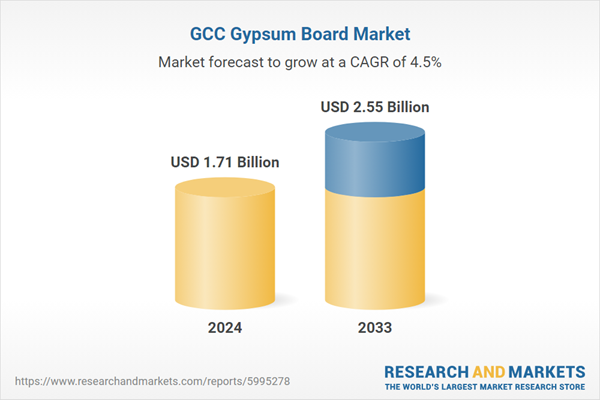Gypsum board, also known as drywall, plasterboard, or wallboard, is a widely used construction material for interior walls, ceilings, and partitions. It is made primarily from gypsum, a mineral that is found in nature as a soft and white rock. The core is made by grinding and calcining natural gypsum, which is then mixed with additives such as starch, foaming agents, and accelerators to improve its properties. There are different types of gypsum boards designed for specific applications. Some common types include standard gypsum board, moisture-resistant board, fire-resistant board, impact-resistant board, and soundproof board.
Gypsum boards are relatively lightweight and easy to install and offer inherent fire resistance due to the presence of water molecules within the gypsum core. They also provide a smooth and even surface that can be easily finished with paint, wallpaper, or other decorative materials. As a result, gypsum boards are widely used in residential, commercial, and industrial construction projects as a preferred choice for creating interior walls, ceilings, and partitions.
GCC Gypsum Board Market Trends:
The market is primarily driven by the increasing construction and infrastructure development across GCC countries. Gypsum boards are widely used in construction projects for interior walls, ceilings, partitions, and other applications. In addition, governments in the GCC region are introducing various initiatives and investment plans to promote infrastructure development, affordable housing, and tourism. These initiatives often involve the construction of residential, commercial, and industrial buildings, creating a significant demand for gypsum boards. Besides this, the growing emphasis on sustainable construction practices is also contributing to market growth.Gypsum boards offer several eco-friendly benefits such as low carbon emissions, recyclability, and energy efficiency. Moreover, the escalating demand for visually appealing interiors in residential and commercial buildings is escalating the demand for gypsum boards as they provide flexibility in design, allowing architects and interior designers to create various shapes, patterns, and textures.
Furthermore, the GCC region has witnessed a surge in renovation and remodeling projects, particularly in the residential sector. Gypsum boards are widely used for renovating interiors, such as partition walls, false ceilings, and decorative elements. This, coupled with the rising disposable incomes of individuals, are creating a favorable market outlook.
Key Market Segmentation:
The research provides an analysis of the key trends in each segment of the GCC gypsum board market, along with forecasts at the country levels from 2025-2033. Our report has categorized the market based on product type and end use.Product Type Insights:
- Wallboard
- Ceiling Board
- Pre-Decorated Board
- Others
End Use Insights:
- Residential
- Corporate
- Commercial
- Institutional
Country Insights:
- United Arab Emirates
- Saudi Arabia
- Qatar
- Kuwait
- Oman
- Bahrain
Competitive Landscape:
The report has also provided a comprehensive analysis of the competitive landscape in the GCC gypsum board market. Detailed profiles of all major companies have been provided. Some of the companies covered include AYHACO Gypsum Products Manufacturing, Global Gypsum Co. LLC, Gypsemna Co. LLC, Knauf LLC (Knauf Gips KG), Mada Gypsum Company, National Gypsum Company, Saint-Gobain (Gyproc), United Mining Industries, USG Boral Middle East, etc. Kindly note that this only represents a partial list of companies, and the complete list has been provided in the report.Key Questions Answered in This Report:
- How has the GCC gypsum board market performed so far, and how will it perform in the coming years?
- What are the drivers, restraints, and opportunities in the GCC gypsum board market?
- What is the impact of each driver, restraint, and opportunity on the GCC gypsum board market?
- What is the breakup of the market based on the product type?
- Which is the most attractive product type in the GCC gypsum board market?
- What is the breakup of the market based on the end use?
- Which is the most attractive end use in the GCC gypsum board market?
- What is the competitive structure of the GCC gypsum board market?
- Who are the key players/companies in the GCC gypsum board market?
Table of Contents
Companies Mentioned
- AYHACO Gypsum Products Manufacturing
- Global Gypsum Co. LLC
- Gypsemna Co. LLC
- Knauf LLC (Knauf Gips KG)
- Mada Gypsum Company
- National Gypsum Company
- Saint-Gobain (Gyproc)
- United Mining Industries
- USG Boral Middle East
Table Information
| Report Attribute | Details |
|---|---|
| No. of Pages | 130 |
| Published | June 2025 |
| Forecast Period | 2024 - 2033 |
| Estimated Market Value ( USD | $ 1.71 Billion |
| Forecasted Market Value ( USD | $ 2.55 Billion |
| Compound Annual Growth Rate | 4.5% |
| Regions Covered | Middle East |
| No. of Companies Mentioned | 9 |









